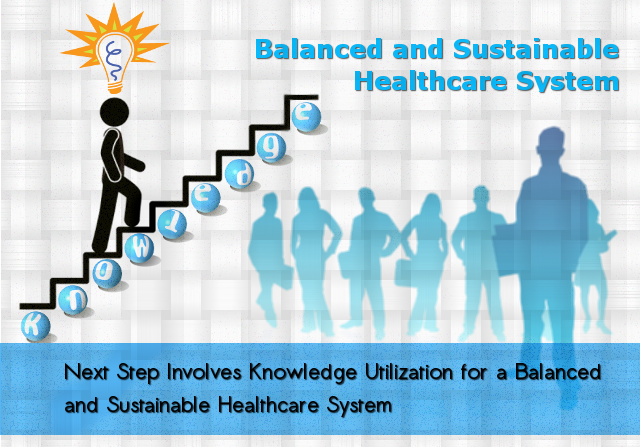Since its inception in 2002, the National Health Security has aided over 48 million Thai citizens by creating an infrastructure that provides quality healthcare to the Thai populace while protecting them against financial ruin from medical debt.
Its establishment has produced several organizations, namely the Thai Health Institute, the National Health Security Office, the National Health Commission Office of Thailand, and the Healthcare Accreditation Institute (a public organization), that have helped with efforts ranging from disease prevention to disease mitigation.
These achievements exemplify the role that the Health Systems Research Institute (HSRI) has played, through knowledge generation and usage, in effecting positive changes in national policies, infrastructure, mechanisms, and organizations within the Thai healthcare system.
But with the constant changes in the economics, politics, and the environment, health problems are becoming more complex. Increases in disease severity and technology use are draining the government’s coffer, while the number of the public health workforce is dwindling. Add to that, the inevitable influx of foreigners, thanks to the ASEAN’s open-border policy, and it is not difficult to imagine the burden Thailand’s healthcare system will have to bear.
It thus falls upon HSRI to analyze and integrate inputs from various disciplines into a knowledge base for use as a weapon against problems affecting the country’s healthcare system.
In addition to effective translation, HSRI will foster coordination between purchasers and providers of healthcare services in hopes of lessening the complexity and fragmentation of the healthcare system so it can reach its full potential.
HSRI also has a role in the Ministry of Public Health (MoPH)’s healthcare reform.
This reform involves the transfer of the MoPH’s authority to a network of managers at the district and local levels. Known as Area Health Boards (AHB), these networks will be semi-independent of the MoPH and, allowed to foster a public-private partnership, could help the government maintain, if not decrease, future cost of healthcare.
HSRI’s role will be to evaluate the success of these AHBs, while searching for a system that best serves the needs of the Thai population.
To tackle important health issues, HSRI has four key strategies:
1. Promote research in key areas affecting the healthcare system
2. Promote research infrastructure that allows researchers to adapt to research needs
3. Develop a comprehensive research management system
4. Develop a system that allows translation of results for commercial and public use
For the foreseeable future, HSRI will call for research projects whose results are adopted into the policy process. These projects will address the various causes of death in different age groups so that goals can be set and strategies created to avoid those causes. It is also hoped that, through research initiated by HSRI, Thailand in five years’ time will see a sustainable AHB network, a steady rise in researchers and quality research, and a functioning research information system.
HSRI, under the leadership of Professor Dr. Somkiat Wattanasirichaigoon, will seek to identify important health issues jointly with professional associations, funding organizations , and stakeholders in the healthcare system. Knowledge from such collaborative projects will be used as a tool to empower Thai citizens to care for their health. Such knowledge will also be used to guide the AHB towards providing efficacious services and effectively managing its human and financial resources.
, and stakeholders in the healthcare system. Knowledge from such collaborative projects will be used as a tool to empower Thai citizens to care for their health. Such knowledge will also be used to guide the AHB towards providing efficacious services and effectively managing its human and financial resources.
Filling in existing gaps in Thailand’s healthcare infrastructure is HSRI’s main strive towards an equitable and sustainable healthcare system. And by effectively utilizing evidence-based knowledge, HSRI hopes it can improve the health and lives of the citizens it serves.






